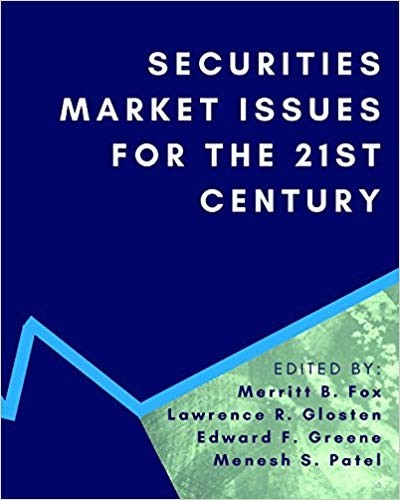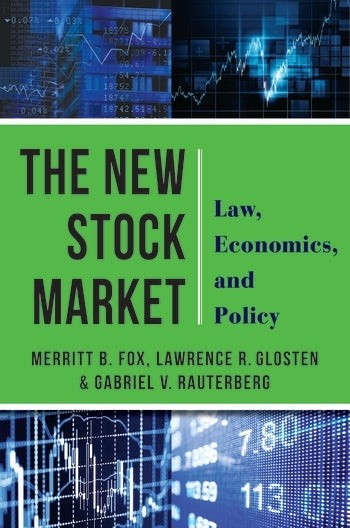by Merritt B. Fox, Lawrence R. Glosten, Edward F. Greene, Menesh S. Patel
Securities Market Issues for the 21st Century
As part of the first stage of the New Special Study, a multi-year program conducted by Columbia Law School and Columbia Business School, this book seeks to critically evaluate the myriad issues of modern securities markets and the regulation of those markets.
We asked thirteen of the world’s greatest experts in securities regulation and financial economics to identify the most important questions concerning the securities markets going forward. Those experts then assess which answers can already be found by researching the existing literature, and which need new thinking or empirical research. This book presents the results of those thirteen experts’ efforts. Across seven chapters, the experts identify important policy guides usable right now and provide thoughtful agendas for future research.
By Merritt B. Fox, Lawrence R. Glosten, and Gabriel V. Rauterberg
The New Stock Market
The U.S. stock market has been transformed over the last twenty-five years. Once a market in which human beings traded at human speeds, it is now an electronic market pervaded by algorithmic trading, conducted at speeds nearing that of light. High-frequency traders participate in a large portion of all transactions, and a significant minority of all trade occurs on alternative trading systems known as “dark pools.” These developments have been widely criticized, but there is no consensus on the best regulatory response to these dramatic changes.
The New Stock Market offers a comprehensive new look at how markets work, how they fail, and how they should be regulated.
Merritt B. Fox, Lawrence R. Glosten, and Gabriel V. Rauterberg describe stock markets’ institutions and regulatory architecture. They draw on the informational paradigm of microstructure economics to highlight the crucial role of information asymmetries and adverse selection in explaining market behavior, while examining a wide variety of developments in market practices and participants. The result is a compelling account of the stock market’s regulatory framework, fundamental institutions, and economic dynamics, combined with an assessment of its various controversies. The New Stock Market covers a wide range of issues including the practices of high-frequency traders, insider trading, manipulation, short selling, broker-dealer practices, and trading venue fees and rebates. The book illuminates both the existing regulatory structure of our equity trading markets and how we can improve it.


